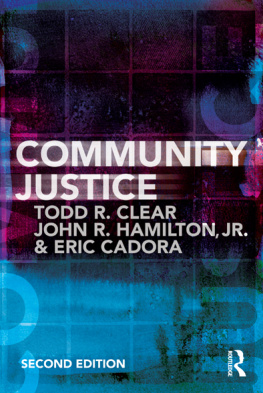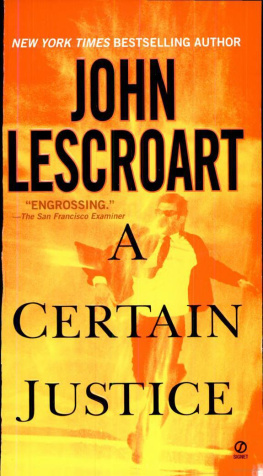2009 The University of North Carolina Press
All rights reserved
Designed by Courtney Leigh Baker
Set in Whitman and Futura by Rebecca Evans
Manufactured in the United States of America
The paper in this book meets the guidelines for permanence and durability of the Committee on Production Guidelines for Book Longevity of the Council on Library Resources.
The University of North Carolina Press has been a
member of the Green Press Initiative since 2003.
Library of Congress Cataloging-in-Publication Data
Ernest, John.
Chaotic justice: rethinking African American
literary history / John Ernest.
p. cm.
Includes bibliographical references and index.
ISBN 978-0-8078-3337-7 (cloth: alk. paper)
ISBN 978-0-8078-5983-4 (pbk.: alk. paper)
1. American literatureAfrican American authorsHistory and criticismTheory, etc. 2. American literatureAfrican American authorsHistory and criticism. 3. African AmericansIntellectual life. 4. African Americans in literature. 5. CriticismUnitted States. I. Title.
PS153.N5E75 2009
810.9896073dc22
2009019735
Portions of this book have appeared previously, in somewhat different form. For details regarding the publications involved, see the end of the Acknowledgments.
cloth 13 12 11 10 09 5 4 3 2 1
paper 13 12 11 10 09 5 4 3 2 1
ACKNOWLEDGMENTS
A number of people have been especially helpful to me as I thought through the ideas and the readings that led to Chaotic Justice. In many ways, I have been working on this book for a number of years, but I finally set out to write it on the suggestion of Robert Levine, to whom I am greatly indebted for his initial advice and his ongoing encouragement. From the beginning, I could not have found my way without the intellectual and ethical compass provided by my great colleague at West Virginia University, Katy Ryan. I am grateful as well to Donald Pease for his encouragementboth at the Futures of American Studies Institute and in a later reading of the first chapterand to Michael Lackey, who also read an early version of that chapter.
When I completed an early draft, I was aided considerably by the astoundingly generous Dana Nelson, who offered not only cogent suggestions for revision but also efficient and thoughtful readings of the revised chapters. While I remain solely responsible for any shortcomings in the chapters that follow, I have to say that this a much better book than it would have been without Danas sound advice. I am grateful to the anonymous reader for the University of North Carolina Press, whose astute commentary on a draft of the manuscript helped me find my focus as I worked through the revisions.
For continuing inspiration, along with useful conversations about portions of this book or about nineteenth-century African American literature more broadly, I am indebted to William Andrews, Brigitte Bailey, JerriAnne Boggis, Leonard Cassuto, R. J. Ellis, Audrey Fisch, P. Gabrielle Foreman, Frances Smith Foster, Eric Gardner, Henry Louis Gates Jr., Kathy Glass, Gordon Hutner, Maurice Lee, Lisa Long, Koritha Mitchell, Joycelyn Moody, Samuel Otter, Eve Allegra Raimon, Hollis Robbins, Xiomara Santamarina, Rhondda R. Thomas, David Watters, Stefan Wheelock, and Barbara White. Im grateful also to Rebecca Mays Ernest for our many conversations about this book at the Hammer and the Beanery.
I have explored various aspects of this books argument in other forums, and my thinking has developed considerably through exchanges with various editors, readers, and audiences. I am grateful to the editors of and readers for the following books and journals: The Cambridge History of African American Literature, Modern Language Studies, Frederick Douglass and Herman Melville: Essays in Relation, Southern Quarterly, Harriet Wilsons New England: Race, Writing, and Region, The Cambridge Companion to African American Slave Narratives, Arizona Quarterly, African American Review, American Literature, PMLA, White Scholars/African American Texts, and Literature on the Move: Comparing Diasporic Ethnicities in Europe and the Americas. I have delivered versions of some of this material in various talks and am grateful for the encouragement offered by audiences at the Third Annual Black New England Conference (2008), American Literature Association Annual Conference (2008, 2006, 2004, and 1999), NEMLA Annual Convention (2008 and 2007), College Language Association Annual Convention (2008 and 2007), American Studies Association Annual Meeting (2007 and 2006), MLA Convention (2006), Society for the Study of American Women Writers Conference (2006), Society for the Advancement of American Philosophy (2006), National Association of African American Studies (2006), European American Studies Association Conference (2002), MELUS-Europe Conference (2000), and Nineteenth-Century Studies Association (1999). For their invitations to present the material on chaos and race before thoughtful audiences, I am indebted to Kathy Glass at Duquesne University and Donald Pease at the Dartmouth College American Studies Institute.
Sian Hunter, my editor at the University of North Carolina Press, has been characteristically supportive and knowledgeable throughout the writing and revising of this book. I have deeply appreciated her quiet and wise guidance through the more difficult stages of the argument and for her encouraging reading of the opening chapters. I am grateful to Beth Lassiter for keeping me informed and on track throughout the process. I thank the editorial, production, and marketing staff at the Pressparticularly Ron Maner for his thoughtful and attentive work as project editor. Stevie Champion was an exemplary copyeditor, both in her attention to detail and in her thoughtful suggestions on style. This is a much stronger, more focused book because of her work.
It would be difficult to overstate my debt to my colleagues at West Virginia University. The core argument in this book began as a talk I presented during my interview at WVU, and since then many individuals have provided warm encouragement, intellectual inspiration, and informed advice. I am fortunate to be associated with so many great scholars (and writers) of American literature, including Tim Adams, Mark Brazaitis, Gwen Bergner, Cari Carpenter, Anna Elfenbein, Michael Germana, Emily Mitchell, Kevin Oderman, Katy Ryan, Mary Ann Samyn, Ethel Smith, and Timothy Sweet. I have also learned much from my participation in the Faculty Research Group of the Department of English organized each year by the energetic and supportive Donald Hall. For their assistance on specific aspects of this project, I sincerely thank Kirk Hazen and Adam Komisaruk. For their encouragement and interest in this work, I am particularly grateful to Dennis Allen and Katy Ryan, and to my colleagues in the Department of Historyamong them, Robert Blobaum, Peter Carmichael, and Kenneth Fones-Wolf. For giving me the time I needed to concentrate on this project, I am indebted to the Department of English and the Eberly College of Arts and Sciences of West Virginia University.
PORTIONS OF THIS book have appeared previously, in somewhat different form, in the following publications:
Economies of Identity: Harriet E. Wilsons Our Nig, PMLA 109 (1994): 42438. Reprinted by permission of the copyright owner, Modern Language Association of America.
The Family of Man: Traumatic Theology in the Narrative of the Life of Henry Box Brown, Written by Himself, African American Review 41, no. 1 (Spring 2007): 1931.
The Floating Icon and the Fluid Text: Rereading the Narrative of Sojourner Truth


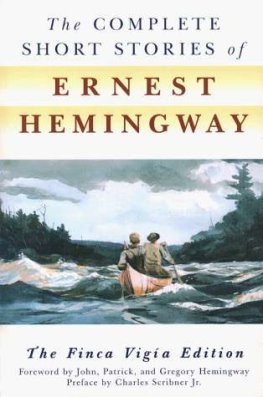
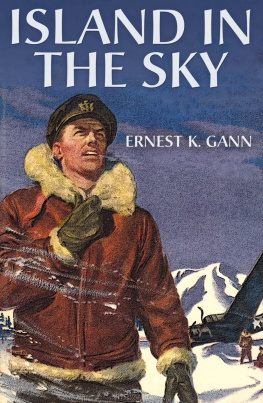
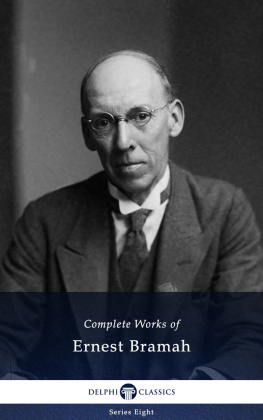
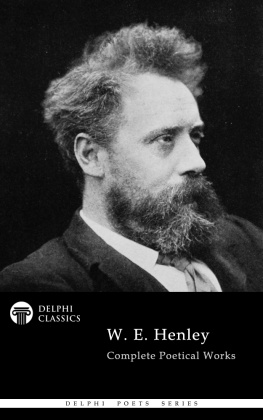
![Ernest Adams [Ernest Adams] - Fundamentals of Adventure Game Design](/uploads/posts/book/119415/thumbs/ernest-adams-ernest-adams-fundamentals-of.jpg)
